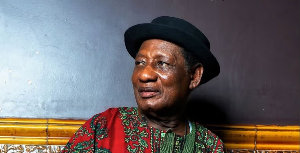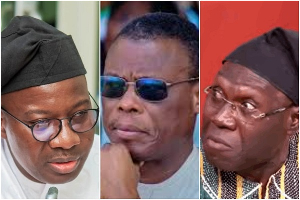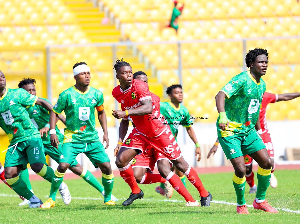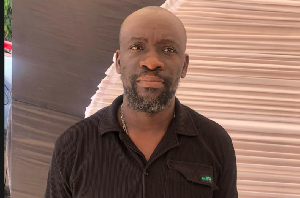By Kofi Akosah-Sarpong
As the December 7 general elections nears the ruling New Patriotic Party (NPP) has come under criticism as being “elitist” by opposition parties National Democratic Party (NDC) and Convention Peoples Party (CPP).
The import is that the NPP isn’t practical, its public policy decisions not descriptively the result of the struggle of forces exerted by the larger Ghanaian traders, workers, artisans, consumers, retirees, parents, farmers, teachers, etc directly or indirectly in the policy-making process.
However, the NDC and CPP argue that they are less egotistical, that they can connect with ordinary Ghanaians better than the NPP that they criticize as being “bunch of rich political fanatics wielding political power to satisfy their whims and caprices.” In the good old days of the CPP when it ruled Ghana, its founder, first President Kwame Nkrumah, branded the CPP as made up of “varanda boys,” that is the populist poor. The NDC and CPP see the NPP as pro-rich.
Ever since Ghana was founded 51 years ago, the parties from which the NPP originated from - the United Gold Coast Congress (UGCC), the United Party (UP), and the Progress Party (PP) – have been made of businessmen/women, the highly educated and some powerful traditional rulers. For this reason, the NPP has been accused by the original CPP (of first President Nkrumah’s period) and some of the CPP apparatchiks that broke away to formed the NDC (which other aspects have military roots from the Provisional National Defence Council days) as being elitist.
Alternatively, the CPP and NDC see themselves as populist. Elite theorists regard pluralism as an utopian ideal and in the Ghanaian political terrain the line between elitism and populism could shift any time and depends on one’s perception. After being in power for almost 20 years, former President Jerry Rawlings, chief priest of Ghanaian populism and grassroots behaviour and owner of the NDC, is simultaneously as populist, autocratic, elitist, rich and powerful as the NPP big-wigs accused of being elitist.
For the NDC and CPP, the NPP is suffering from elitism. Some NPPs think the NDC and CPP are merely being envious of some NPPs achievements. NPP presidential candidate for the December 7 general elections, Nana Akufo-Addo, is accused of being elitist and arrogant. Akufo-Addo, whose father Edward, was President, comes from family of high politicians, gravitas, and wealth dating to the founding of Ghana. With its capitalist orientation, the NPP is seen as pro-rich, business friendly and has the ability to tie freedoms to business growth.
Not surprisingly, the NPP is equated with America’s Republican Party, that’s described as pro-rich and business oriented. The NDC sees itself as the US Democratic Party, that’s pro-poor. In the event of Democratic Barack Obama winning the November US presidential elections the NDC has been using Obama’s pictures in its campaigns, projecting itself as part of global populism creed within the framework of its social democracy platform.
However, at more universal sense, the NPP isn’t elitist and is as grassroot-oriented as the CPP and the NDC. Practically, the NDC and CPP could be as elitist as the NPP. Broadly, elitism is the attitude that certain individuals are considered members of the elite, a select group of people with outstanding personal abilities, intellect, wealth, specialized training or experience. The NPP project itself as such, priding itself as better managers of the economy. Or elitism could be individuals with distinctive attributes whose views carry the most weight; or whose views and/or actions are most surely to be constructive to society as a whole; or whose superb skills render them uniquely fit to govern.
The CPP and NDC have elites among them, with the NDC flagbearer for the up-coming elections being law professor, John Atta-Mills, and the CPP’s Paa Kwasi Nduom, having a PHD in business studies. Followers of the CPP, NDC and NPP expect their respective elites to use their skills to help solve Ghana’s development challenges. In the Ghanaian political and development speak anything less than their elites’ abilities to use their skills to develop Ghana is “book long,” a situation where the elites skills are useless or counter-productive.
No doubt, President John Kufour, revealing how accusation of being elitist could have negative political consequences, says the NPP isn’t elitist and that “policies of [NPP] government rather gave a parallel pointer to the opposition's claims” of the NPP being elitist. Being elitist in Ghanaian politics can mean not only being grassroot-oriented but being “pro-rich,” especially the NPP that has being accused of being “property owning capitalist,” as if other big-wigs of the CPP and NDC either do not own properties or aren’t aspiring to own properties.
After emerging on the Ghanaian political scene some 20 years ago as anti-elitist, ex-President Jerry Rawlings and his associates not only own properties at home and abroad but are rich and look well fed.
Politics of elitism aside, there are growing sense among Ghanaians that their elites haven’t used their skills enough to push the frontiers of Ghana’s progress, that the elites are “book long,” and that the elites have weak confidence in themselves, unlike those in Southeast Asia, that have reflected negatively on Ghana’s progress. Whether the NPP, NDC or CPP, Ghanaian traditional values aren’t featured prominently in the thinking, planning and programme delivery in relation to the Western neo-liberal values running Ghana. Ghanaian elites are faulted for this state of affairs.
From their records, the NPP, CPP and NDC elites, over the years, have shown signs of mixing Ghanaians values with their Western concepts. But the NPP elites, more through Nana Akufo-Addo, in a build-up on President John Kufour, show much fuller attempts to go the Southeast Asian way by attempting to mix Western concepts with local ingredients and redesigned to take new forms. Akufo-Addo’s proposed Institute of Chieftaincy, as part of his broader confidence building project to hasten Ghana’s progress, will be a perfect medium to mix Ghanaian traditional values with that of the Western neo-liberal ideals for progress.
Such attempts by Ghanaian elites, to demonstrate higher thinking openly in Ghana’s progress, will surely minimize the “book long” resentments, lower any elitist condescending notion, and see Ghanaian elites, whether from the NPP or CPP or NDC, as part of the broader Ghanaian traditional egalitarianism and progress.
Opinions of Saturday, 22 November 2008
Columnist: Akosah-Sarpong, Kofi
It ain't elitist to be an NPP
Entertainment













